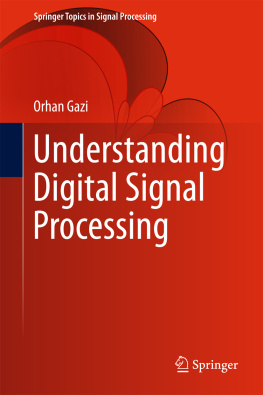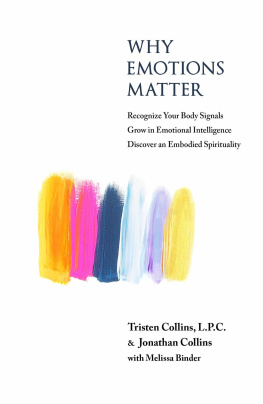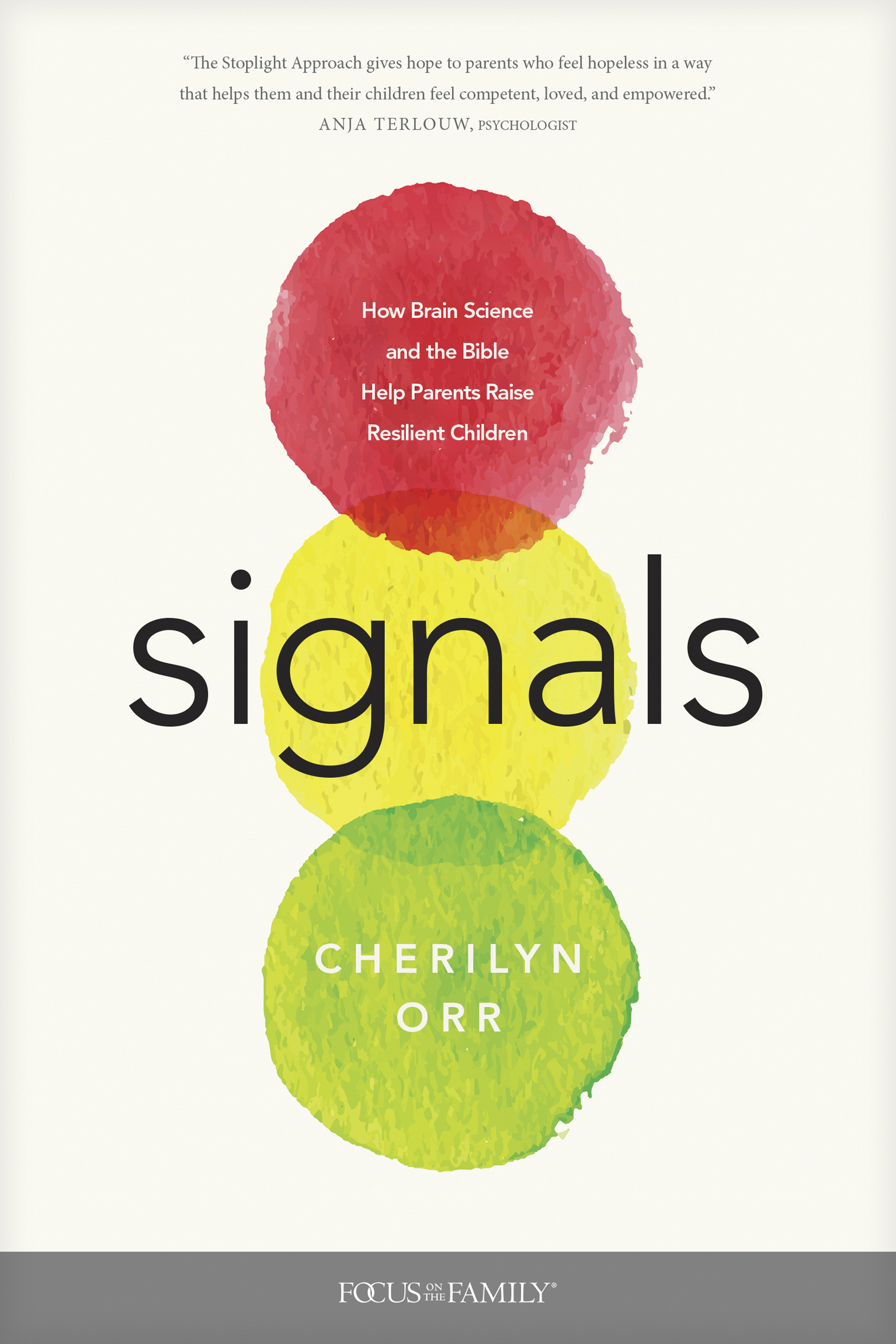Signals: How Brain Science and the Bible Help Parents Raise Resilient Children
2022 Cherilyn Orr. All rights reserved.
A Focus on the Family book published by Tyndale House Publishers, Carol Stream, Illinois 60188
Focus on the Family and the accompanying logo and design are federally registered trademarks of Focus on the Family, 8605 Explorer Drive, Colorado Springs, CO 80920.
Tyndale and Tyndales quill logo are registered trademarks of Tyndale House Ministries.
No part of this publication may be reproduced, stored in a retrieval system, or transmitted in any form or by any meanselectronic, mechanical, photocopy, recording, or otherwisewithout prior written permission of Focus on the Family.
Unless otherwise indicated, all Scripture quotations are from the ESV Bible (The Holy Bible, English Standard Version), Copyright 2001 by Crossway Bibles, a publishing ministry of Good News Publishers. Used by permission. All rights reserved. Scripture quotations marked NIV are taken from the Holy Bible, New International Version, NIV. Copyright 1973, 1978, 1984, 2011 by Biblica, Inc. Used by permission. All rights reserved worldwide. Scripture quotations marked NRSV are taken from the New Revised Standard Version Bible, copyright 1989 National Council of the Churches of Christ in the United States of America. Used by permission. All rights reserved worldwide.
Cover and interior illustration of watercolor dots copyright Viktory_S/Depositphotos. All rights reserved.
Interior charts and illustrations by Lynn Owens, used with permission.
Cover design by Ron C. Kaufmann
For information about special discounts for bulk purchases, please contact Tyndale House Publishers at , or call 1-855-277-9400.
ISBN 978-1-64607-065-7
Build: 2022-05-26 14:51:01 EPUB 3.0
Introduction
H OW CAN I WRITE A BOOK ABOUT PARENTING ?
I sometimes still ask myself that question, or a version of it. I know how imperfect I am at this job. Im frequently fatigued and often feel like a total failure as I try to guide my kids toward wisdom and resilience. There have been times when I wasnt sure I had the physical, emotional, or mental strength to finish the day, much less help other parents understand how to get through their days.
Why would anyone want to hear what I have to say?
I expressed my doubts to my husband as I was considering this project. He agreed that weve faced some big challenges in our family, but that it was these trials that gave me the ability to help other parents. You have lived it, he said. You can speak into other parents lives not because you are perfect or make every decision perfectly, but because you understand the challenges so well.
You have lived it. We have indeed. These days, we usually have ten children sitting around our dinner table at night: seven kids of our ownfour of whom weve adoptedand a few other foster children weve brought under our roof until the situation improves for them elsewhere. Several of the children weve welcomed into our home have faced special academic and behavioral challenges; a few others have experienced significant trauma. And weve done all of this while living overseas outside the comforts of our own culture. As my husband reminded me, our family life is a lot more complicated than what many people our age experienceraising a couple of kids in a big home in the suburbs. Whether through our family life or our ministry, there arent many parenting challenges we havent faced.
Being a mom to these kids constantly reminds me that family life is a place for growthfor kids, obviously, but also for parents. And I have seen much growth in my parenting strategies. Early on, I used the sorts of tactics my own parents used as I was growing up. If youre around my age, you may know what Im talking about: a sort of fear-based system of expectations enforced with punishment. Obey the rules or reap the consequences.
Dont get me wrong: My mom and dad were good parents in the sense that they wanted what was best for my siblings and me. They did what they could with what they had, and I remember with fondness their wisdom, love, and good intentions. But I also recognize that most moms and dads of that generation didnt have the resources and understanding of science and childhood development that we are fortunate to have today.
So thats another reason I can help parents: Ive witnessed firsthand how helpful a parenting approach that fuses scientific research and biblical wisdom can help us do our jobs better. These insights have taught me the importance of adjusting my parenting strategies to fit the reality of how kids and parents best function together.
The strategies well be looking at are likely not major departures from your philosophy of parenting. We all love our kids and want to guide them toward making good decisions that will help them be successful in life. But it is helpful to align our tactics with how kids are functioning in the heat of the moment. That is my goal with this book: to help parents recognize how and when children and parents best function, based on how God made us.
Of course, changing ones parenting strategy isnt ever very easy. You may be changing habits that have become deeply entrenched. Its difficult, for example, to unlearn the habit of instantly and harshly reacting to misbehavior and then replace that habit with a more intentional, growth-focused response. Its hard work, and these decisions can take a lot of repetition before they become a natural part of you. But understanding how kids are builthow the state of a childs brain influences his or her behavior and decision-making ability in times of stress or peaceis an incredibly powerful tool to have at your disposal.
So, what is this tool and how can I get it? To answer that, lets briefly jump back to the spring of 2011. I was in one of those feeling absolutely overwhelmed phases of parenting. Traveling as a family tends to amplify those feelings. There were nine of us at the time, and we were in the middle of a family road trip across two countries. All of us, in a van, for hours on end. There were some difficult moments.
We stopped to spend a couple days at my friend Marilyns house. Marilyn specializes in child development, so many of our conversations naturally turned to parenting and our work with children who had experienced trauma. I told her about the challenges of my adopted children, including one extremely spirited child who always seemed to have a will that was directly opposed to mine. Our home school lesson times were especially trying, often disintegrating into full-throated temper tantrums (from my daughter, not me). I couldnt figure out what I was doing wrong. I was trying to make the lessons easy to understand and within each childs skill level. I also kept school on a routine as much as possible, knowing that kids best function when the days events are predictable. Even on our road trip, we stuck to a basic learning schedule. But it seemed that a full-on battle ensued every day, especially with this one daughter.
I invited Marilyn to join our school time the next morning. Things started out fine. The children were fed and seemed ready to focus on their assignments. And the task that morning was pretty simple and low-key. I asked my kids to draw and color a picture about something interesting or enjoyable theyd experienced so far on our trip. Below the picture, they were to print a sentence describing the scene.









